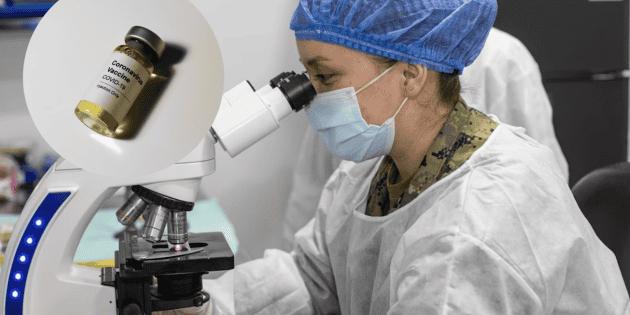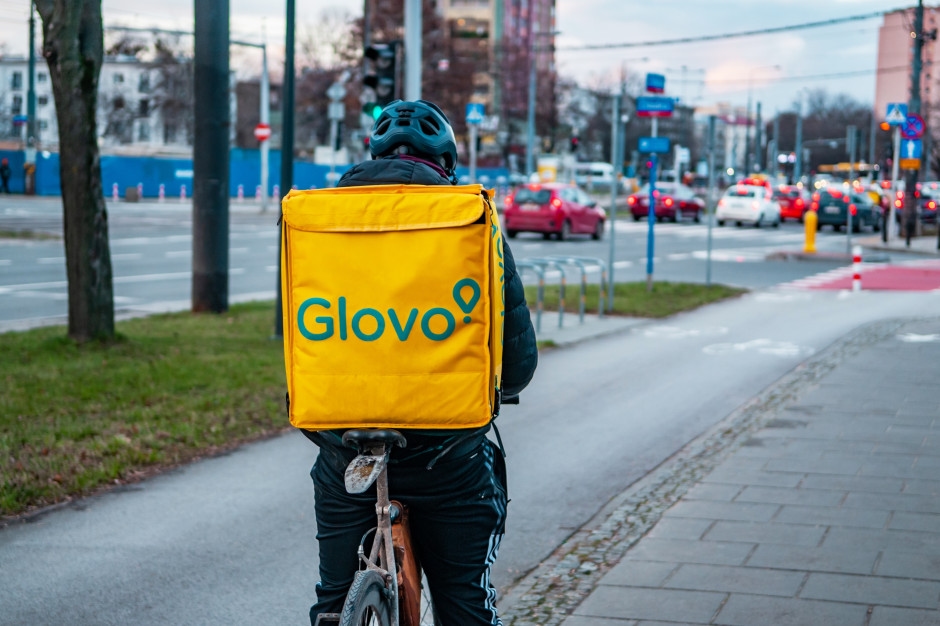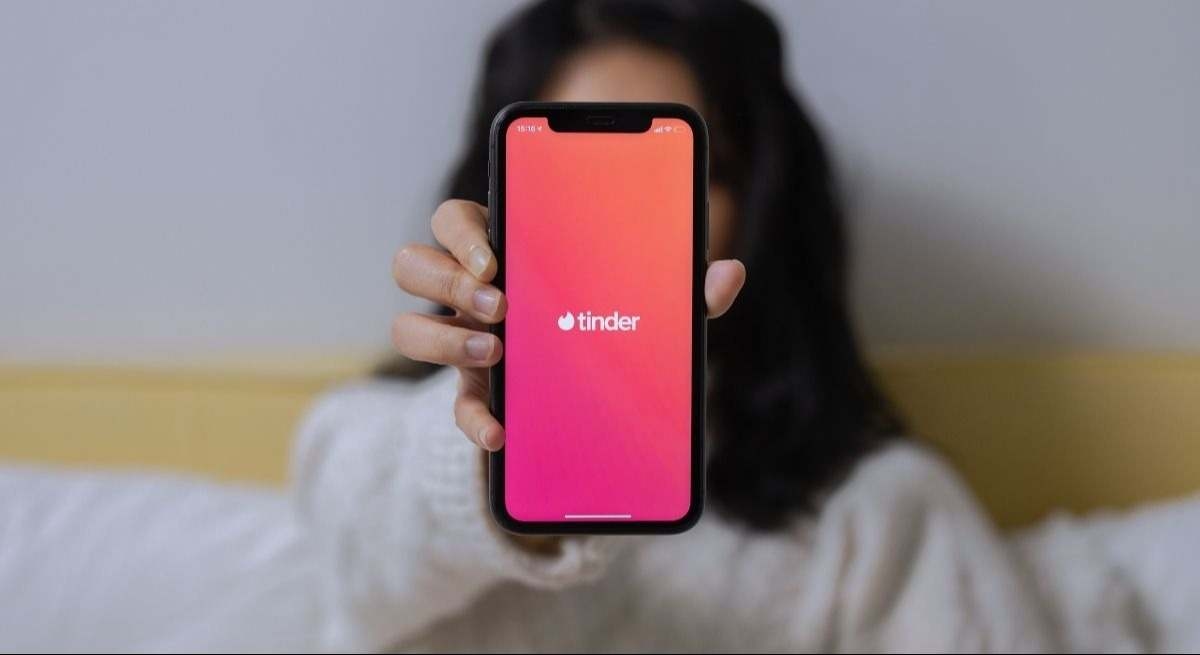For a global player, Poland is a unique market. "An incredible opportunity."
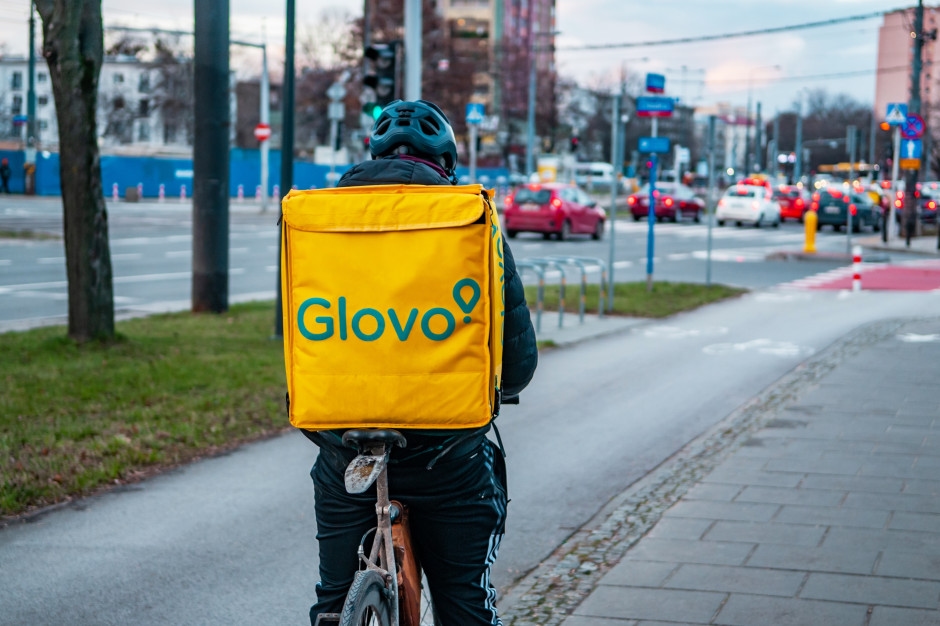
- - Glovo has not decided to leave Poland, despite strong competition - says Sacha Michaud, co-owner of Glovo, whom we spoke with during the Glovo Startup Campus in Barcelona.
- During the Covid-19 pandemic, the e-commerce market has expanded to include retail and supermarket services.
- In the area of Glovo's operations, the Ukrainian market operates on a fully free market basis and does not require any support.
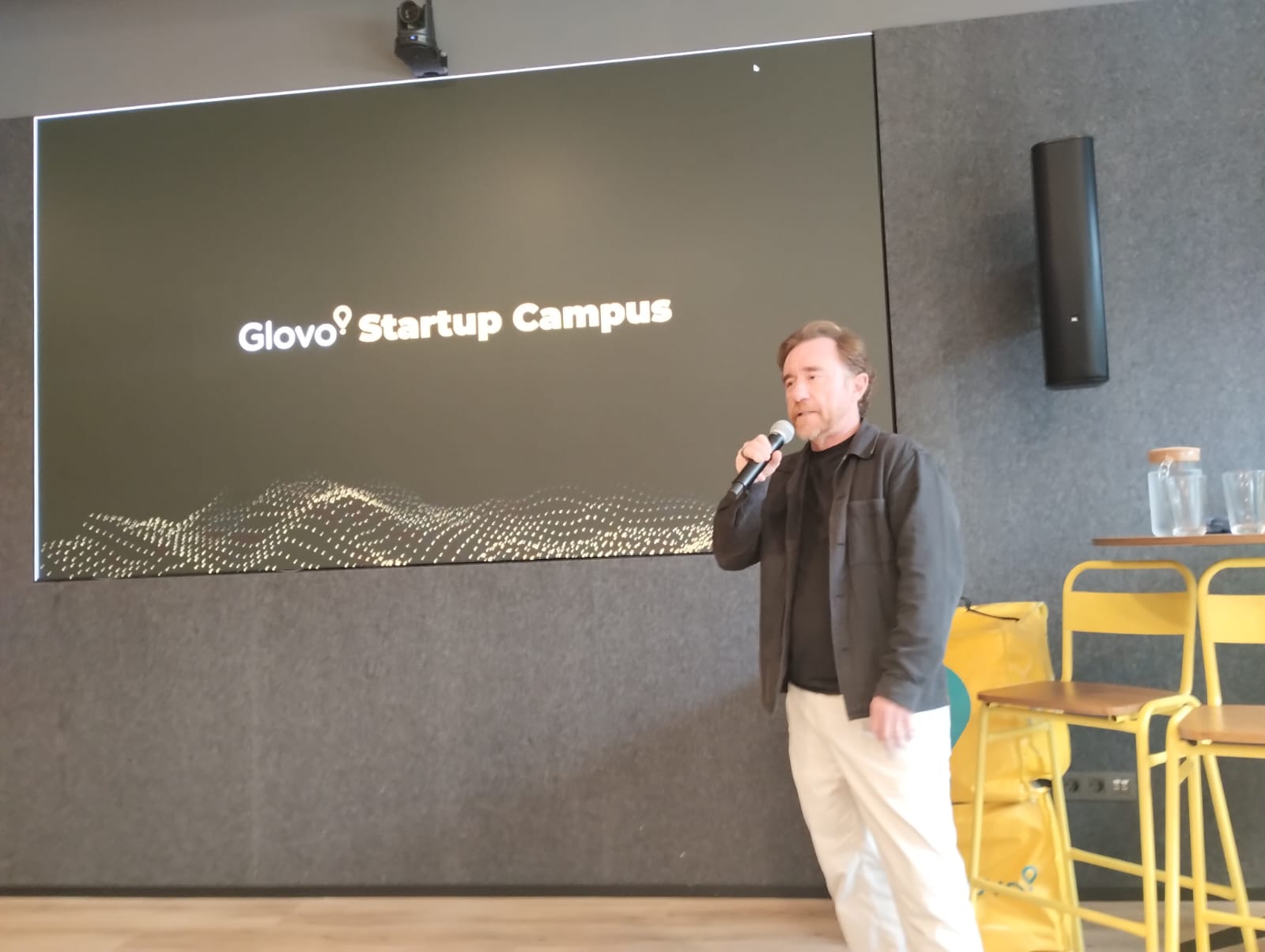
You operate in many markets, not only in Europe but also beyond. In your presentation, you emphasized that you're not focusing on the largest markets, such as Germany or France, where there's intense competition. Rather, you want to find a partner where you can be the first to market. That's your strategy, isn't it?
"Yes. Honestly, it just worked out that way for us because we had more difficulty raising funds and accessing capital compared to our main competitors around the world. They were all raising significantly more than us. So, in the end, we had to choose our battlegrounds. We decided we could conquer many emerging markets where there was less competition. This way, we could really make our mark and start building our business on preferential terms."
Glovo skipped investing in developed markets. Poland was an exception.Gaining market share and fierce competition is very expensive. In fact, that's how we grew. But it was because we had no other choice.
We didn't have the capital to enter the British or German markets. The only exception is probably Poland , where we felt we had an incredible growth opportunity. Competition there was fierce, but we gave it a try.
In our country there is a lot of competition in your industry…
"There are many companies similar to us in Poland. Your country is probably one of those cases where we didn't decide to leave, despite intense competition. In Poland, we had the opportunity to acquire a player, Pizza Portal, which allowed us to enter the market. Thanks to this, we gained a satisfactory market share, although the competition is still very strong."
There are four or five very competitive operators in your country, but I'd like to emphasize that our team has done an incredible job. They've managed to position us as one of the leaders.
So I think the overall strategy was sound, but in Poland we decided to seize the opportunity and decided to invest. The country became a market for us, and we've invested in it and continue to invest in its development.
Furthermore, I believe that a market as competitive as Poland's is optimal for consumers. The greater the competition, the better the service, the greater the choice for consumers, and the larger the segment or industry. Therefore, if four excellent companies operate in a market, consumer awareness increases significantly compared to a situation where only two entities operate.
How does your situation compare to the Covid-19 pandemic? Do companies like yours seem to have coped well during this period, given the new realities?
- The pandemic was a double-edged sword.
Of course, it didn't negatively impact our business, but it was detrimental for many of our partners. Depending on the regulations, each country had different rules. Our partners could serve customers in stores, but restaurants were not allowed to open.
This was an exceptionally difficult situation for most of our partners, and we were seen as a kind of lifesaver because we offered digital ordering, so our affiliated companies used our services. It's worth remembering that opening hours were shortened during the pandemic, so there was some chaos.
What really changed, and we were already offering this, was the inclusion of retail and supermarkets in our services . Until then, most of our competitors didn't have a supermarket presence.
They weren't experts at it. We were already doing it, but we didn't see the same growth as restaurants. Suddenly, it became necessary to order groceries because we weren't supposed to go to grocery stores due to the pandemic. Customers were very happy with the service. After the pandemic, all customers who started ordering groceries for express delivery continued doing so.
They became accustomed to this way of shopping. This became the starting point. Naturally, all our competitors also adopted this model and began to focus on fast food and grocery.
The changes that took place during the pandemic have revolutionized the e-commerce marketThanks to this, we've reached a level of development where you can order groceries and have them delivered within 30 minutes in the city. Overall, I think it was a good time from this perspective, as it was the time when new business models emerged. However, it was also a very challenging period for running a business.
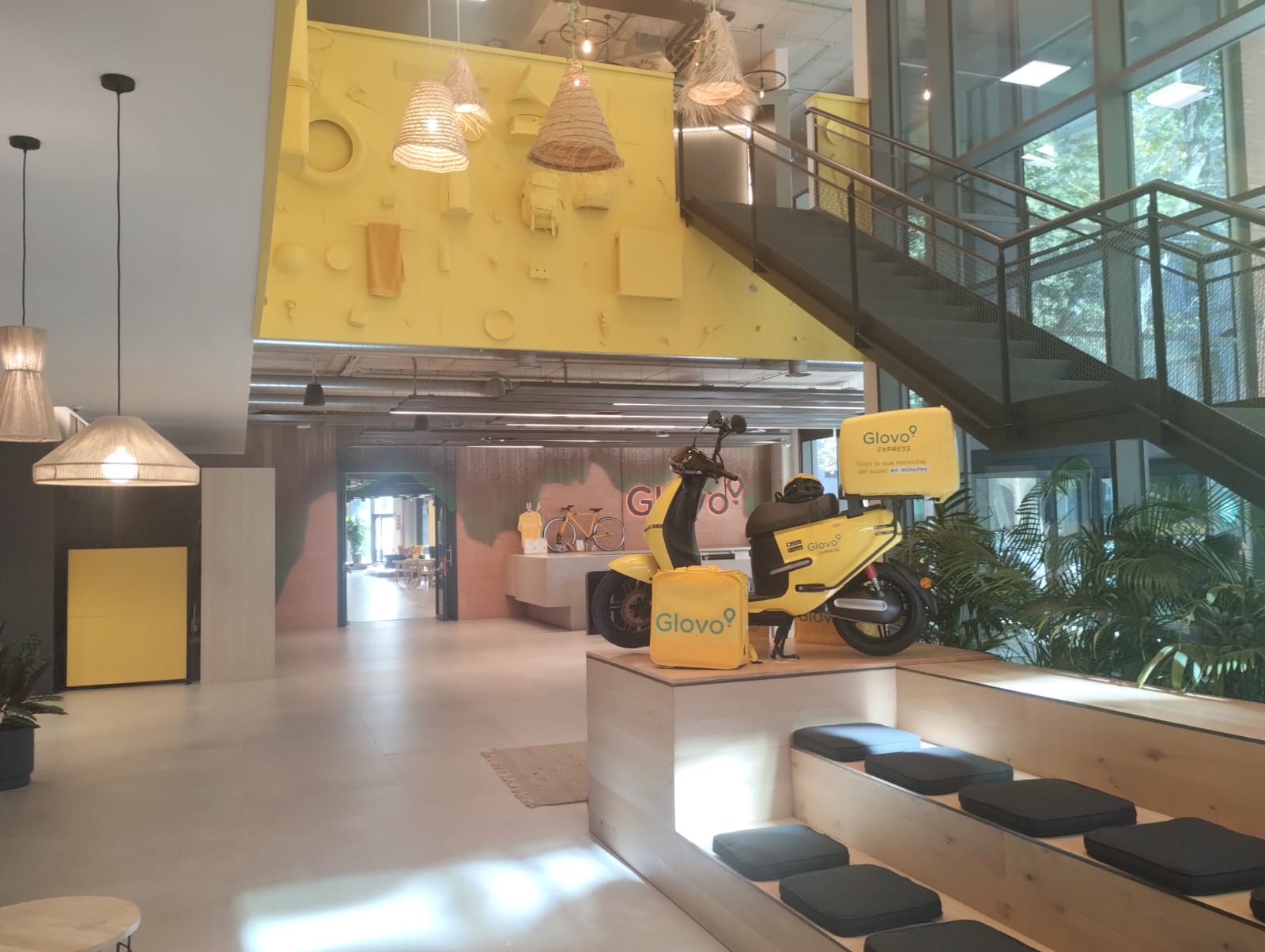
Are you still operating in Ukraine? What's it like running a business in a country engulfed in war? Especially in the context of a business that requires significant mobility?
"It's certainly a very difficult challenge. The country is in a constant state of turmoil. It's not just the cities on the front lines that are problematic, which is obvious, but also most of the local area, which is regularly bombarded from all sides. So it's a complex environment to operate in. When a full-scale invasion occurred, the first thing we wanted to do at our headquarters in Barcelona was to shut down operations."
However, our team reacted to this decision and wanted to continue operating in this market.
As a result, our couriers adapted to wartime conditions and managed to enable deliveries using technologies other than those previously used, such as Telegram. Our partners—restaurants and shops—were reopened. We, of course, contacted the Ukrainian government about this and asked if we could reopen.
We received a positive response.
We've developed several high-speed technological solutions to ensure security. For example, we can stop an order in the event of an air raid.
The Ukrainian market during the war forced Glovo to introduce new solutionsCustomer refund assistance. We haven't had many solutions like this before. So we've created a number of innovations specifically for the Ukrainian market, ensuring safety in the event of aircraft alarms.
We also prepared for power outages. These cities regularly experience such problems. This was a great success. I think this story demonstrates that it's possible to build sustainable businesses in Ukraine today.
So from a financial point of view, does Ukraine function like a regular market?
"Yes. Our operations today are a prime example of this. We closed our branches in five or six cities on the front lines because they were unsafe. We currently operate in about 40 cities. Today, we have a larger business than before the war and are growing by 20 percent year over year. We are very happy with this, and it's economically viable, and the people of Ukraine need it."
You also operate in countries like Kazakhstan, Kyrgyzstan, and some African countries, which aren't considered very stable markets in terms of legal regulations, corruption, and other business issues. How do you navigate such a business environment?
Yes, I think the outside perception is often worse than the reality. That's one thing. We've launched in 22 countries. In reality, we're looking for some kind of social, economic, and regulatory stability.
We understand that doing business in some countries is challenging. In some markets, local regulators can change regulations overnight, catching us off guard. At the same time, Glovo, as a global company, adapts to local markets and regulations. Challenges may arise, but it's important to emphasize that these are emerging economies, and their governments want them to thrive. Companies like Glovo, as foreign investors, are viewed favorably because they invest in local markets.
Goods from local businesses are delivered to consumers. And that's very important. Furthermore, we're digitizing the local economy and cities. I think we're generally perceived very positively, especially in emerging economies, where digitization is key. We invest for the first few years. We don't make profits. So we invest for the long term.
wnp.pl



